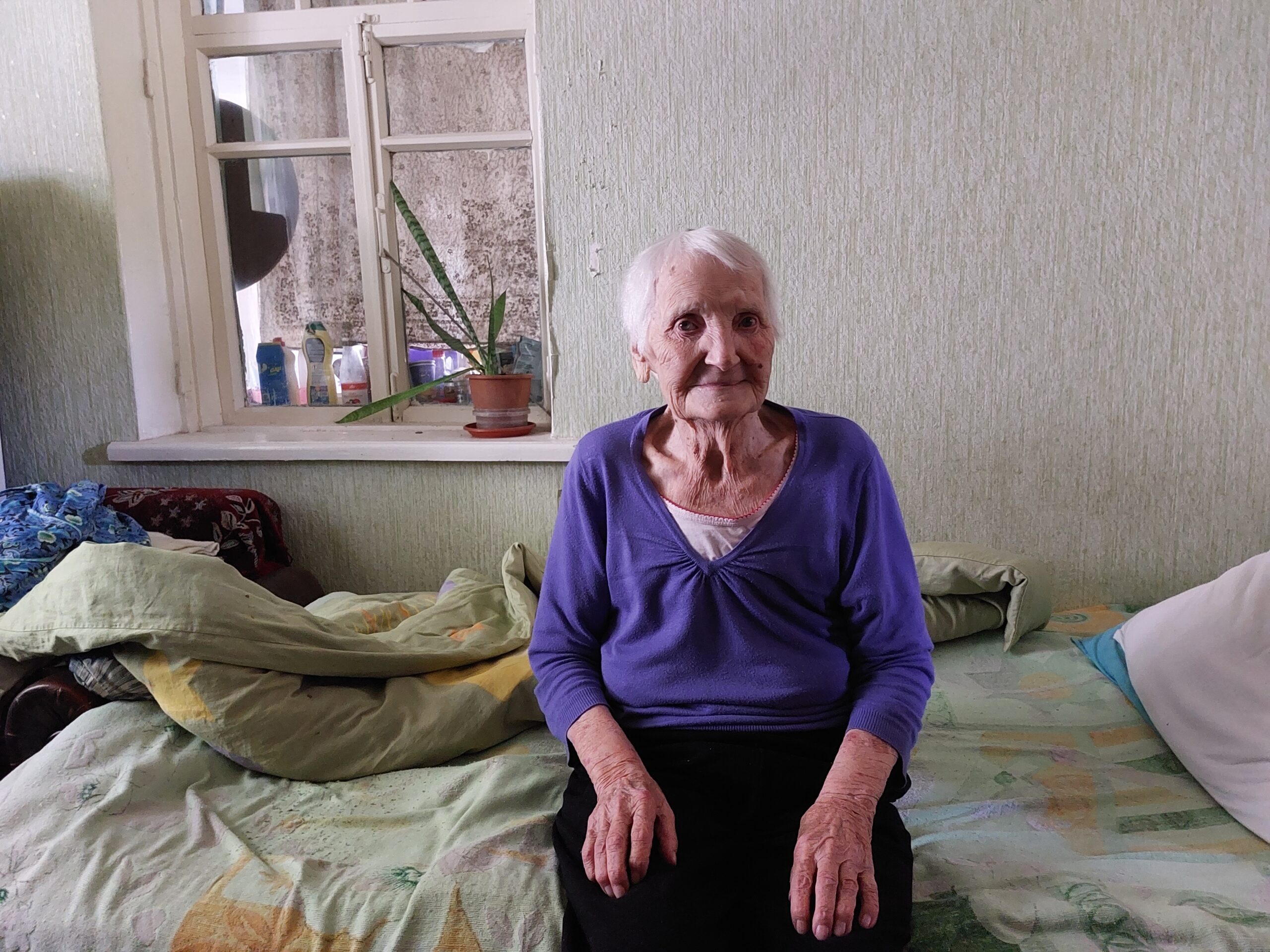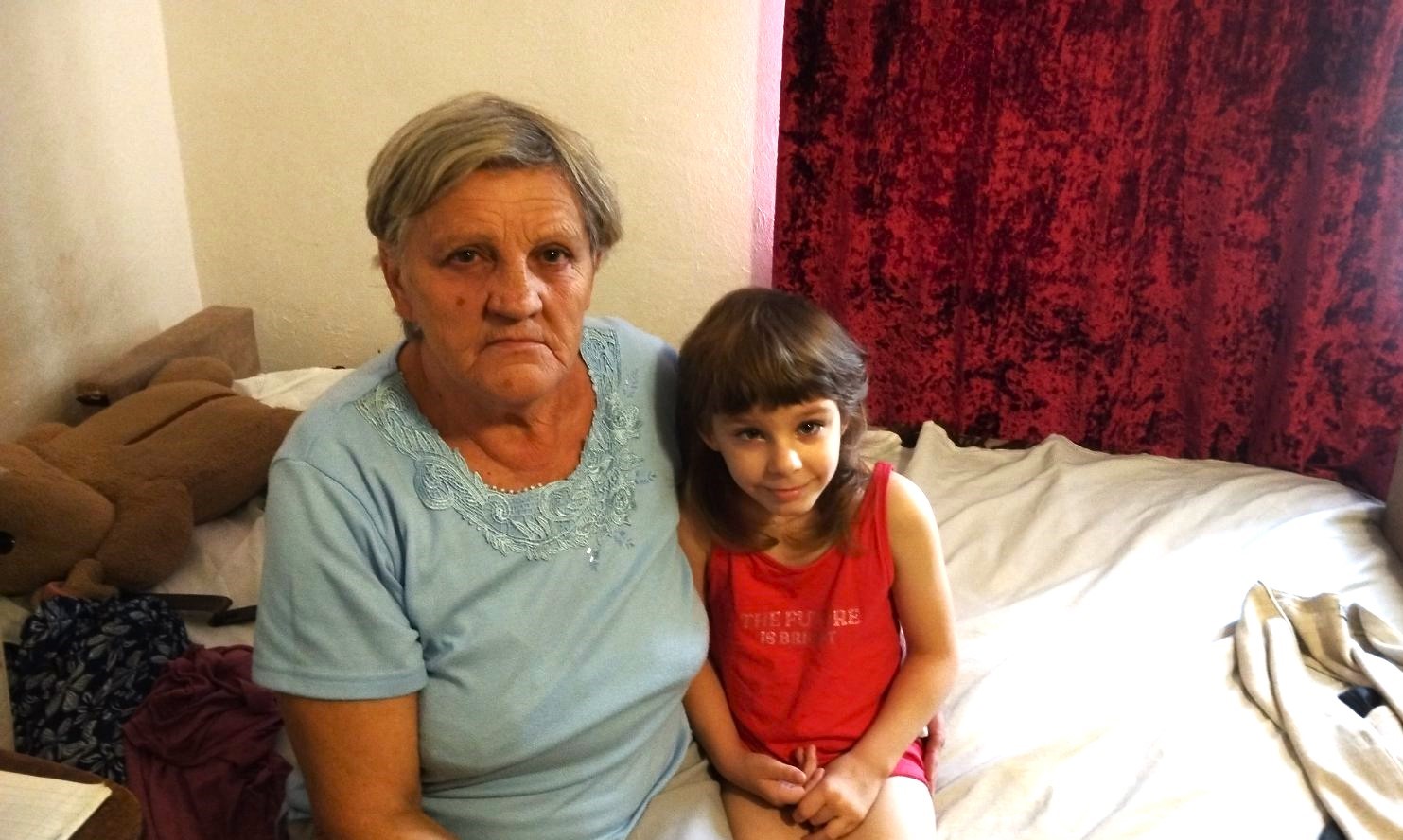The full-scale war in Ukraine has turned Ihnat’s life, like millions of other Ukrainians, upside down. Before the Russian invasion, he was a respectable man who owned a house, worked in a factory, earned additional money fixing household appliances and looked after cattle. He had planned to retire in a year and had never imagined that he would meet his sixtieth jubilee in displacement far away from his hometown Volnovakha in Donetsk region.
Due to its strategic location at the railway crossroads, Volnovakha fell under the temporary military control of the Russian Federation in the first days of the invasion. Ihnat and his co-workers were caught at the factory, sheltering from heavy shelling for ten days. “We were covered with rubble, it was very loud and scary, but we managed to get out, and I took my working tools and a change of clothes, and left for Poltava with my friends,” Ihnat recalls.
In his host community, Ihnat was able to find a job as an electrician, made new friends and met a woman with whom he soon moved in and started fixing her house: he built a gazebo, installed a shower in the yard, and erected a fence. However, his health began to fail due to his long-standing chronic sciatica, and his glaucoma worsened.
With the help of UNHCR’s local partner Right to Protection, he applied for UNHCR’s multi-purpose cash assistance and used this support for surgery and medicines to help him recover. This enabled Ihnat to improve his health, and continue to be productive in his new workplace and engage in community activities. “I dream of seeing my children and meeting my granddaughter. Lera was born eight months ago, and I have only seen her on video. I’m waiting for the war to end, so I can go home,” says Ihnat, showing a photo of his granddaughter.
101-year-old Nina from the city of Zaporizhzhia is a survivor of the missile attack that claimed the lives of 17 civilians in October 2022. A multi-storey apartment block where she lived was at the epicentre of the attack.

This winter, Nina will be able to spend in her home repaired with UNHCR’s cash support. Photo ©UNHCR Viktoriia Tiutiunnyk
“I woke up because the house was shaking. All I remember was glass flying from the windows. I saw red flames, immediately it became impossible to breathe. In my bedroom, there were thick curtains, and they protected me from the missile debris. I was lucky to survive,” she recalls.
Despite the shock, Nina gathered herself together and called her relatives asking for help as she could not get out of the rubble on her own.
Because of the shelling, all the windows in her apartment were shattered and the doors were damaged. Fortunately, she could stay with her family as it was impossible to live in her home, especially during the winter. They helped Nina to apply for UNHCR’s cash-for-repair programme implemented by UNHCR’s partner Caritas Ukraine Charitable Foundation. Developed to cover expenses for repairs, this modality enables people to fix their damaged homes.
“We were happy to be able to help Nina. Her life is marked by many events that have brought sorrow and pain. She survived the famine known as Holodomor, the Second World War, and then was forced to leave her own apartment, where she spent most of her life,” Andrii Torin, the local coordinator at the Caritas Ukraine, noted.
With the cash-for-repair assistance, Nina could pay for new windows and doors and other minor repairs to her home and now she will be able to spend the upcoming winter in her warm apartment. “All I want is to return to my home,” she says.
A place to call home is one of the key needs for millions of internally displaced people in Ukraine, including 69-year-old Valentyna who was forced to flee with her two grandchildren from her hometown Kramatorsk in the Donetsk region. They left the day after a Russian missile hit the railway station, killing 63 civilians, including nine children, on 8 April 2022.

Valentyna and Raisa were displaced from Kramatorsk and were able to rent an apparеment in Vinnytsia thanks to UNHCR’s support. Photo provided by Valentyna
After arriving in Vinnytsia in central Ukraine, they were first accommodated in a collective site where living conditions were challenging, in particular for 6-year-old Raisa who needs special medical care. “For many months we stayed in a dormitory with many others who were also displaced. My grandchildren were often sick due to the cold and the damp. My pension and the state allowance for displaced people were the only sources of income for us so it was difficult to rent a place to live,” Valentyna explains.
This has changed when UNHCR through its NGO partner Medair provided the family with cash-for-rent assistance aimed at supporting the most vulnerable displaced people to pay rent. Valentyna and her grandchildren were able to move into a more comfortable two-bedroom apartment and the cash assistance covers the rent as well utility bills for several months. This helps Valentyna to save money for medical expenses for little Raisa, and address their other critical needs, such as food.
35-year-old Olena and her family, including two sons, Oleksandr, 12, and Myroslav, 6, have been displaced for 18 months. Under heavy shelling they fled from the town of Chuhuiv in the Kharkiv region to Uzhhorod in Zakarpattia. The full-scale invasion on 24 February 2022 has upturned their lives. “We used to have a home, a car, and a family business in our own shop, which was set up by my parents. We could afford to have holidays by the seaside. And then, in just one moment, everything was gone,” Olena says.
She convinced her mother and her eldest son to leave Chuhuiv immediately but stayed behind with her husband and her youngest child for 11 days taking shelter in a basement from the air attacks. When the shelling intensified, damaging critical infrastructure leaving the town without heating and electricity, and the main road leaving the town was cut off by the Russian armed forces, Olena realized she could not wait any longer. Their long journey from the most eastern part of the country to the west took four days. In Uzhhorod, the family was reunited and, since then, has been staying in a collective centre in a dormitory of the local university.
Being once a business owner, Olena is struggling to find a job in her new place, but actively volunteers and supports other displaced people in the collective site. Their first winter in displacement was tough.
“I remember walking into a shop, looking at the winter clothes but having no money to buy the things I needed. Soon after, I received cash assistance from UNHCR which made me very happy. I was able to buy clothes and shoes for my sons, and even little presents for them for the New Year.”
Olena and her family are unable to return to Chuhuiv as the region is still heavily affected by hostilities. Preparing for the second winter far from home, she saves money to buy charging devices to be used during possible power cuts, as well as clothes and school items for her sons who are growing up fast.
In Ukraine, UNHCR implements one of its largest and most advanced cash programmes in the world. Thanks to various modalities, it is tailored to the needs of displaced and war-affected people, respects the dignity of choice and their independence, providing them with a sense of normality and ownership and allowing them to decide what they need most – prepare for winter, pay rent, repair their homes, buy food and live in dignified conditions. Since the start of the Russian invasion, UNHCR has provided cash assistance amounting to USD 300 million to 2.1 million people in Ukraine and will continue to prioritize this type of assistance. UNHCR and its local partners run multi-service protection centres and/or mobile teams for cash enrolment and protection screening in 17 oblasts in Ukraine reaching the people most in need.
Share on Facebook Share on Twitter